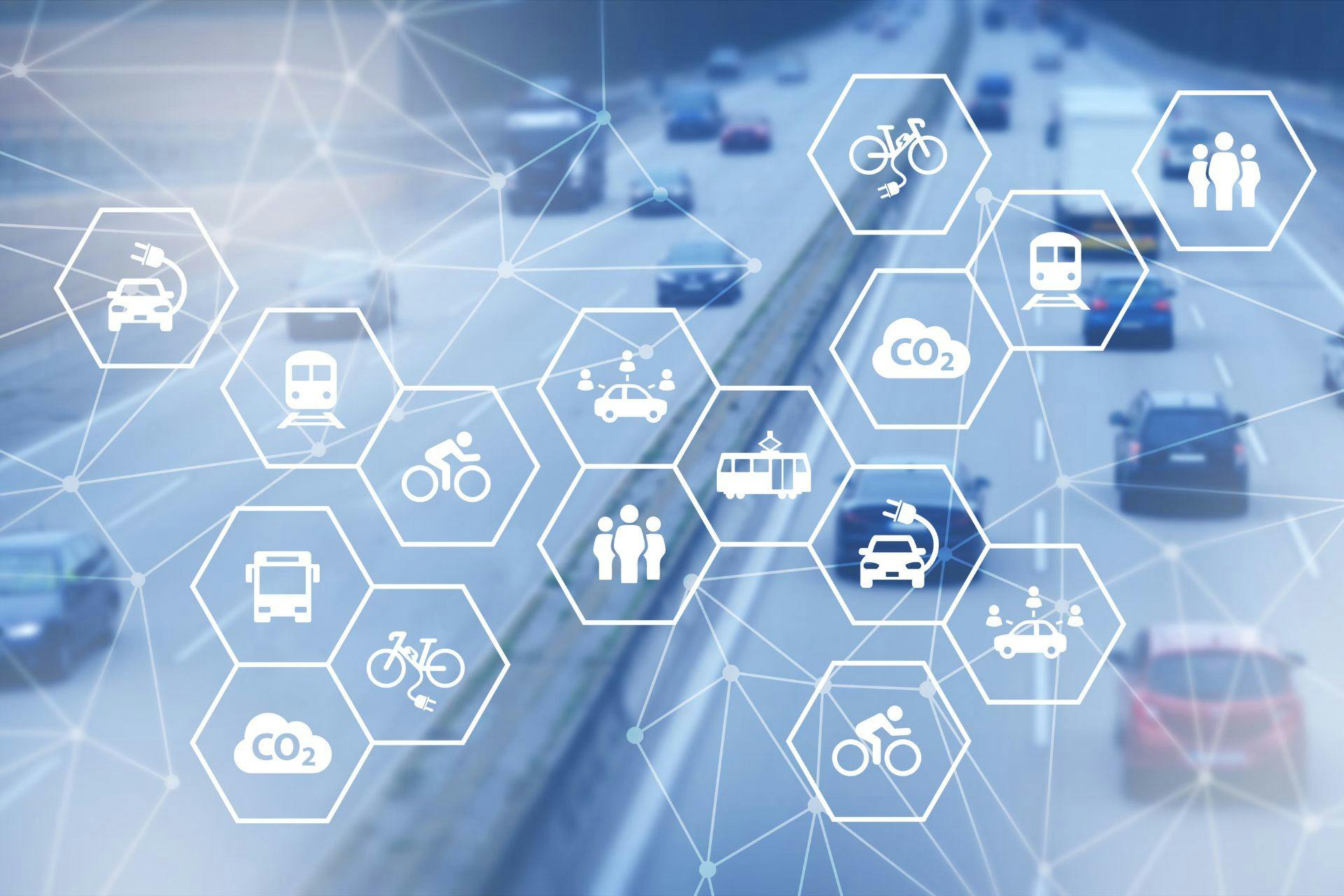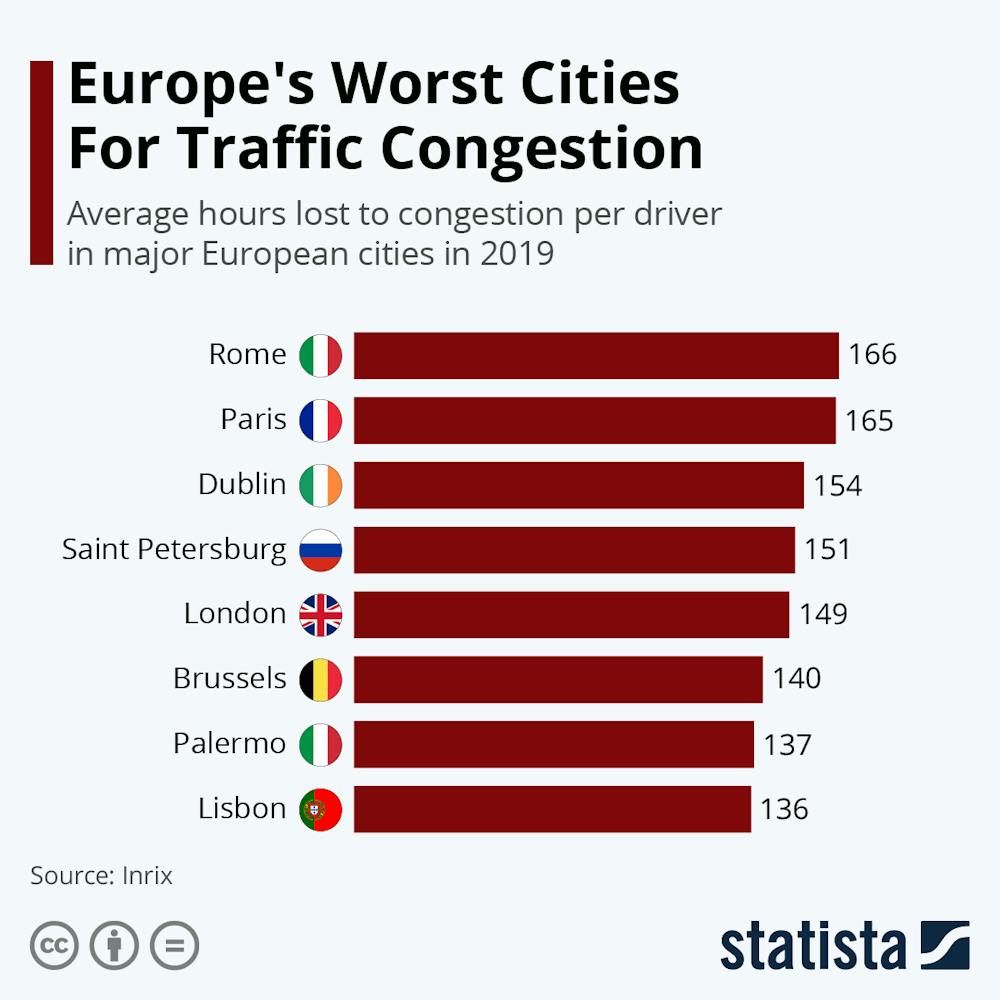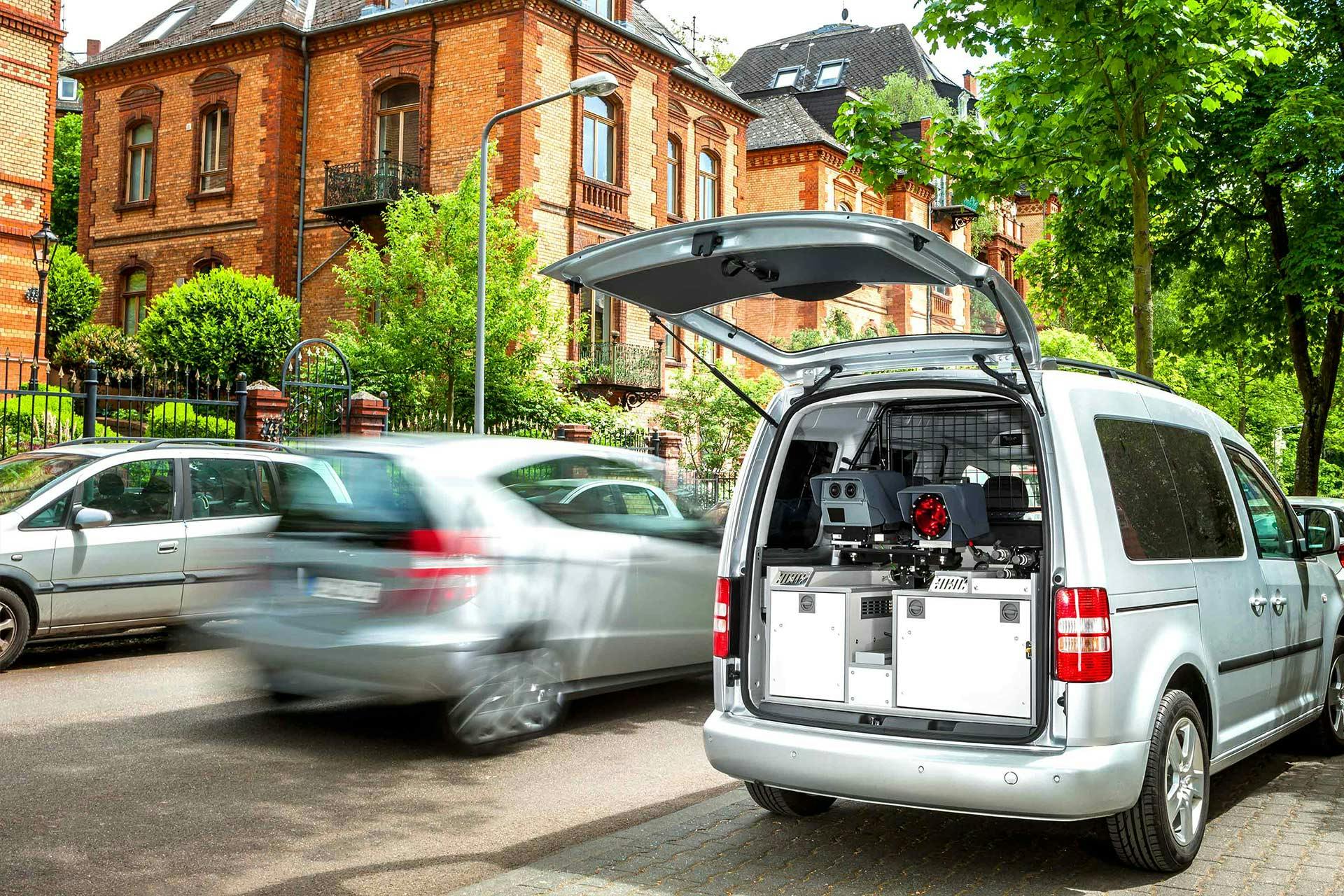Transport authorities have faced—and will face—many challenges to provide fast, reliable, climate-neutral, but especially safe mobility solutions. New players, new technologies, new legal frameworks, new values but also more available data leads to new thinking, new strategies and most importantly, new user-centric approaches. The traffic sector is at a crossroads. However, there are cities around the world that have showcased best practice already. They are beacons of light for future smart mobility change. This next decade will shape the future of mobility. Change is inevitable. Let's embrace it!

Smart Mobility The Traffic Sector at a Crossroad
Drawing the mobility map of future traffic
The mobility industry faces transformative change. The upcoming ten years will show if connected, flexible, green, and socially inclusive mobility can be realized. At the center of this change process are traffic organizations and public authorities—organizations that play a vital role in creating future-proof and user-centric traffic concepts. Four renowned mobility experts shared their learnings.
If you take a holistic view of existing mobility landscapes, you will see a huge puzzle. Private vehicles of any kind, pedestrians, logistic providers, public transport services, transport authorities—each piece represents a vital part. Each piece is constantly changing. Each piece is a source of information. Each piece is interconnected.
This puzzle presents a never-to-be-seen challenge for all authorities, be it city councils, federal organizations or ministries. In Germany alone, there are close to 75 integrated transport authorities. About 450 local public transport companies are part of the Association of German Transport Companies (VDV). 400,000 transport experts are employed in these transport authorities. Their task? First, to draw the map for a green, safe, reliable and sustainable mobility of the future and then to unite the puzzle pieces.
“The whole population is aware that we have environmental problems which are caused by traffic, and therefore we need to rethink how we behave,” explained Peter Ummenhofer, Founder of GO Consulting, one of the international experts sharing their views. The Vienna-based ITS specialist highlighted individuals’ behavior changes and evolving mindsets, identifying a general shift away from a dependency on cars in favor of more flexible, eco-sensitive, and connected mobility models. Even older people, Ummenhofer is quick to add, are shifting in their behavior; this change is not limited to young urbanites. Whether it’s due to a growing environmental consciousness resulting in people leaving the car behind in favor of public transit, or simply the ubiquity of smartphones and new connected mobility services such as rideshare apps or on-demand rentals, the populace is primed for—and demanding—new models of mobility.
The impact can also be witnessed in the Netherlands, as the Dutch mobility expert Cees van Buchem, an experienced consultant for public traffic projects, showcases. “We have recently hit the walls of our system in two local crises, [leading] to a paradigm shift within our mobility community,” explained van Buchem. The small country is battling a serious climate crisis that also impacts behavior in traffic and even blocks much-needed new infrastructure projects on a national level. Moreover, a social divide is growing bigger and bigger.
But it’s not just an ever-more digitized end user who’s driving this shift in how we get from A to B. Municipalities, too, are aware of the downsides to continued dependence on cars: “Driving is actually one of the most expensive things a city can have in their environment,” explained mobility journalist Don Dahlmann, citing not only the time lost each year to sitting in traffic jams (120 hours for the average German) but also the approximate costs that cities carry on account of bumper-to-bumper traffic: 2.8 billion Euros per year in Germany alone. According to the Inrix ‘Global Traffic Scorecard’ measuring traffic congesti[1] on in 1,360 cities worldwide, by 2030, traffic congestion in the USA, in France, in Germany and in the UK will release an equivalent of 17.9 million tons of CO2 into the atmosphere—at tremendous costs. Across Europe, forecasts suggest the long-term cost of traffic congestion could rise to €150 billion by 2050.
In previous years, Dahlmann dived deeper into the Future of Mobility, the role of Autonomous Vehicles, the challenges of Smart Cities, as well as the impact of IoT and Artificial Intelligence (AI) on the mobility sector. “Mobility was invented to save time,” the Berlin-based writer reminded the attendees of the Traffic Summit. Since the invention of the wheel, we’ve come full circle: our transit is instead slowing us down.
Authorities are catching on to this, dedicating more and more of their resources to building environments with safer, cleaner and less traffic. In Europe, many cities are in the process of banning fossil-fuel engines from their streets altogether. Dahlmann cited the examples of Barcelona’s superblocks project, which aims to reduce car routes by 61%, and Paris’ plan to establish car-free districts in the center of the city and slash 72% of all public parking spots in the coming five years. These initiatives are not limited to Europe: Tanzania’s bustling port city Dar es Salaam has implemented an ambitious project to curb car traffic in favor of bus lanes.
The Netherlands goes in the same direction: The small European country became a lab for new concepts, as the Dutch ITS expert Cees van Buchem describes. He outlines examples such as the shift from mitigating effects e.g. by enforcing bike helmets to increase safety versus solving the root causes of dangerous situations in traffic such as a high number of cars as well as speed or red-light violations. Instead of encouraging driverless vehicles or eMobility, the Netherlands are discussing new forms of mobility, for instance walking, bikes or more public transport.
Will cars vanish altogether? Not entirely, says Dahlmann: emerging technology such as AI, electric vehicles, and autonomous driving will spur the development of new car-use models and more eco-friendly traffic concepts. This innovation will provide new opportunities but also challenges for transport organizations across the world.
Propelled by technological advances such as AI, blockchain, and quantum computing, vast troves of mobility data can now be parsed more easily, resulting in new business models: private transport service providers such as Uber, “value-added mobility service providers,” e.g. companies that manage parking and/or toll payment, and tech solutions that help manage traffic flow and safety are popping up right and left. “I call it the mobility startup jungle,” says Peter Ummenhofer, highlighting the complexity, variety, and speed with which these innovative solutions and new business models race to take advantage of technological progress. Traffic authorities will have to collaborate with new players and need to think in modular and interconnected ways.
“New mobility means a ‘win-win-win’ for all stakeholders,” stresses the Austria-based ITS expert Ummenhofer. New concepts will bring improved safety, more convenience, more options for the traffic users. But it also means fewer costs and new business opportunities for the operators. In the end, the entire society will benefit: the future will be greener and more sustainable.
Van Buchem adds and describes what he calls a “tipping point” in the shift from personal mobility to shared and public transportation in the Netherlands. Propelled forward by the limits of climate change and a recent social crisis, the Netherlands has had to consider new options. Within the existing systems, there is a push to “create a more agile and more cooperative way of working together...I see not so much a top-down approach anymore, but more of a collaborative momentum where the principal and the government are teaming up with users and suppliers.”
The more complex the traffic puzzle becomes, the more players involved, the more important a clear data strategy becomes, especially with public authorities, stresses Suzanne Hoadley, the fourth expert in the group. At Polis, a Brussels-based network of local transit authorities, Hoadley’s main role is to empower local transit authorities to incorporate and leverage data in their transport policy and practice—data that also empowers startups to build new business.
Traffic Efficiency Data, she explained, serves as a basis for transport planning and policymaking, helping not only to shape policy but also to evaluate its impact. But what Hoadley, in her twenty-plus years of transit experience, has found most compelling is the shift towards digitization and data culture that she has observed on the part of local public authorities, a sort of awakening and realization that “data is not just a byproduct of systems...data is a valuable asset that needs to be curated. [These shifts] revealed the need to build a data culture in local government.”
Summary
In Brief:
- The future of traffic is green, sustainable, safe and flexible.
- Transport authorities need to explore behavior change and develop user-focused concepts.
- European capitals such as Paris, Barcelona or Berlin prove that multimodular mobility concepts work.
- All traditional stakeholders - but also new players such as startups - can benefit from the transformation in the traffic sector.
- Data is key not only for transport planning and policymaking, but also to evaluate its impact.




